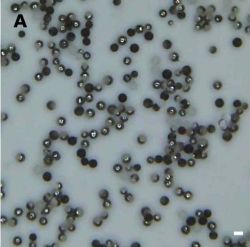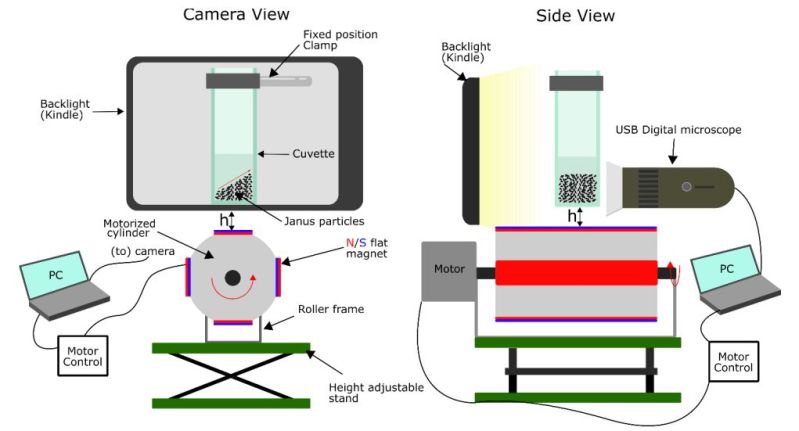
Granular media such as sand have a range of interesting properties that make it extremely useful, but they still will obey gravity and make their way downhill. That is, until you coat such particles with a ferromagnetic material like iron, make them spin using an external magnetic field and watch them make their way against gravity. This recent study by researchers has an accompanying video (also embedded below) that is probably best watched first before reading the study by Samuel R. Wilson-Whitford and colleagues in Nature Communications.
In the supplemental material the experimental setup is shown (see top image), which is designed to make the individual iron-coated polymer particles rotate. The particles are called Janus particles because only one hemisphere is coated using physical vapor deposition, leaving the other as uncovered PMMA (polymethyl methacrylate).
While one might expect that the rotating magnetic field would just make these particles spin in place, instead the researchers observed them forming temporary chains of particles, which were able to gradually churn their way upwards. Not only did this motion look like the inverse of granular media flowing downhill, the researchers also made a staircase obstacle that the Janus particles managed to traverse. Although no immediate practical application is apparent, these so-called ‘microrollers’ display an interesting method of locomotion in what’d otherwise be rather passive granular media.
















Hiro Hamada might have a few ideas how to use this technology.